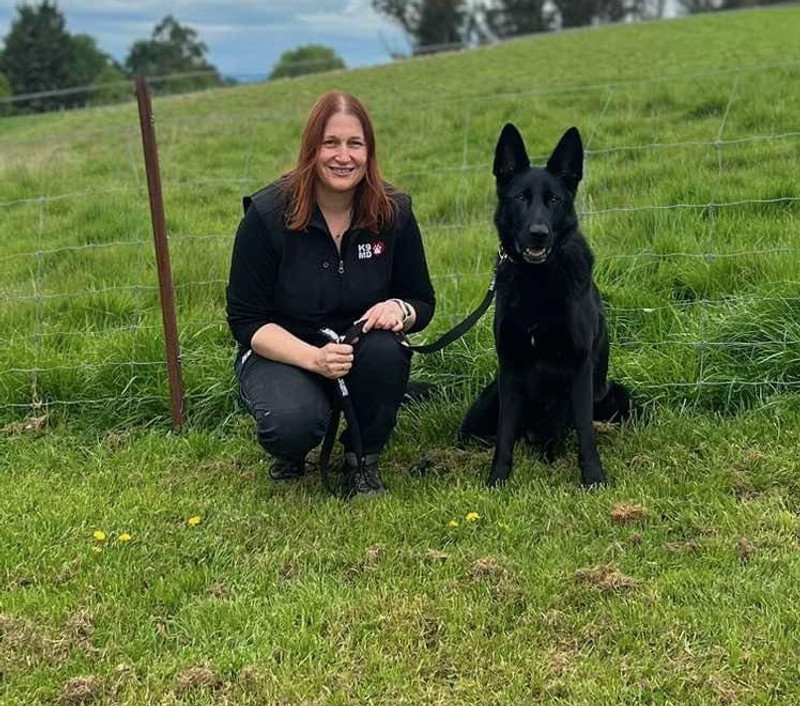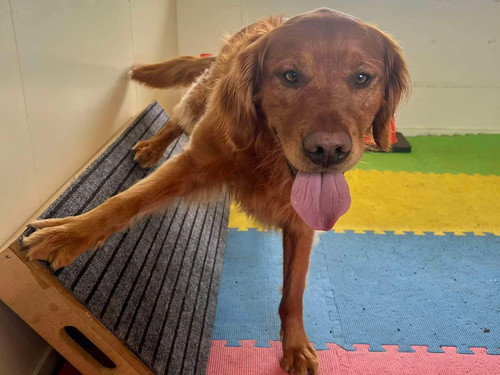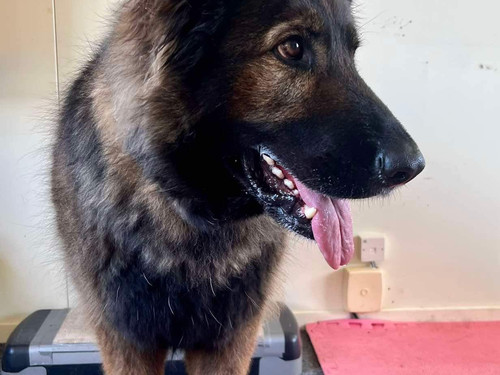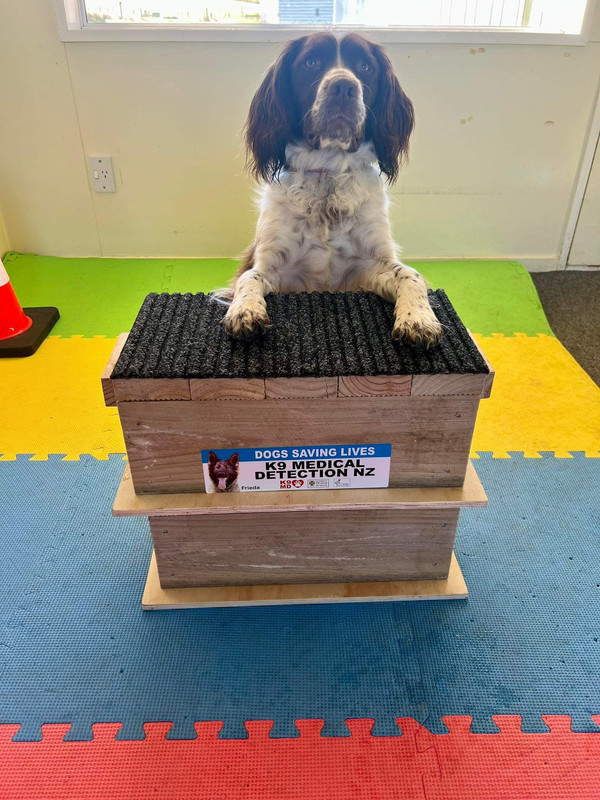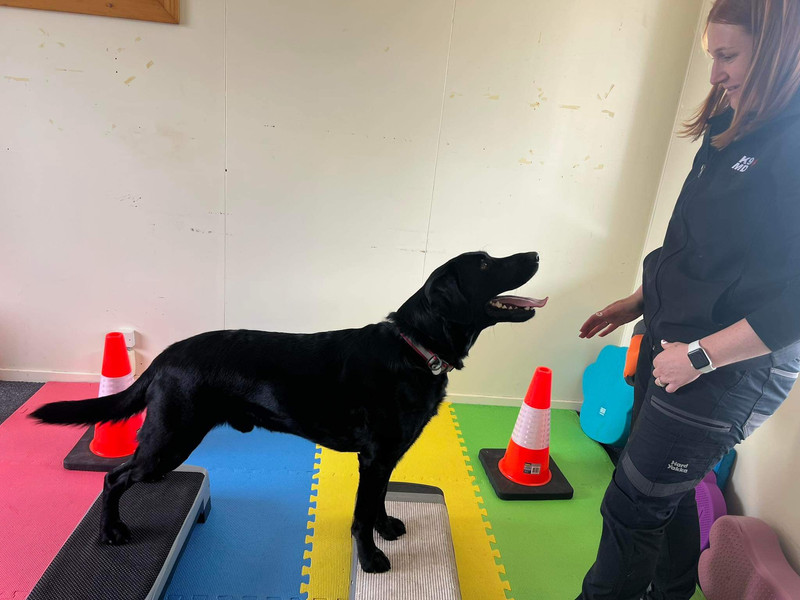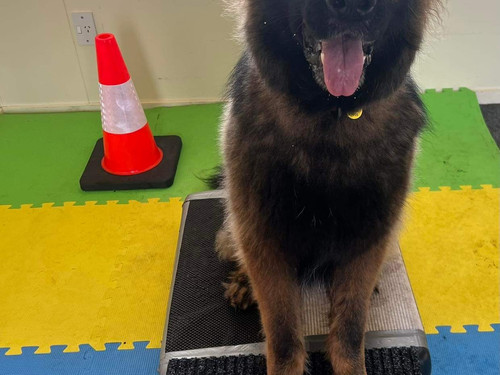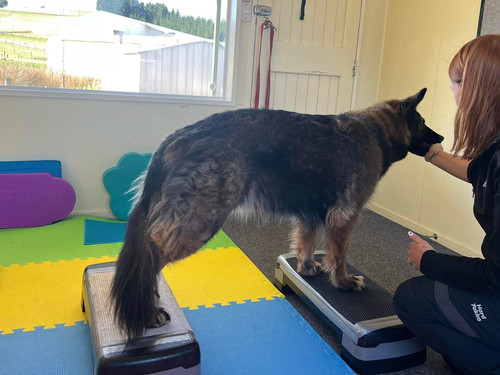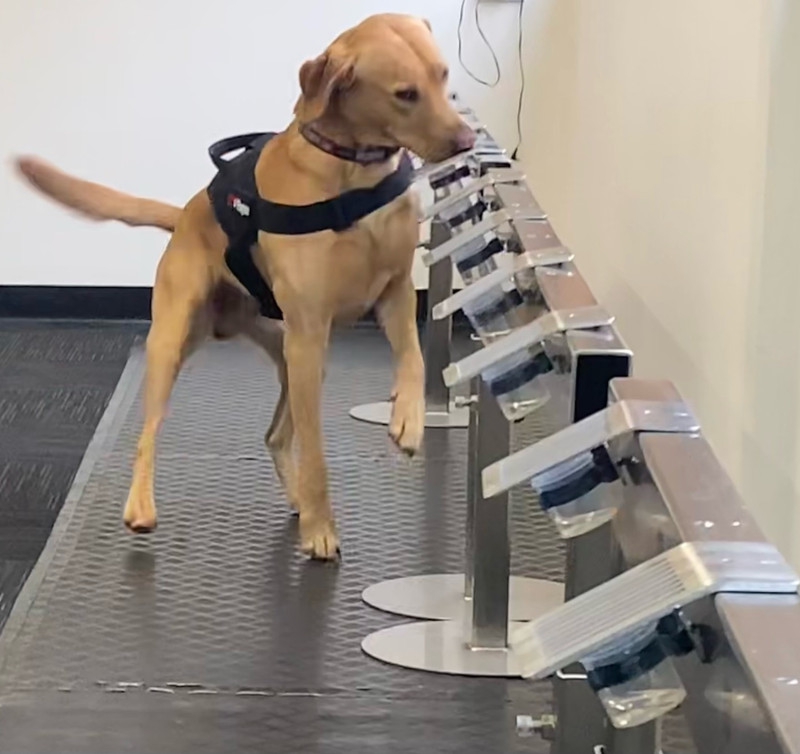Dog Blog Issue Fourteen
Let’s get physical
We all work better when we feel better. Physical fitness is as important to the mind as it is to the body, and canine physical fitness is a recognised requirement for safe and effective performance of working dogs. Keeping a working dog healthy involves much more than what is needed for the typical companion animal, though, and needs to be guided by a specialist veterinary-qualified trainer.
The wellbeing of our medical detection dogs is always top of our list when developing our training and cancer diagnostic methodologies. Maintaining our team of dogs at the peak of physical health and fitness is not only important for their wellbeing, but also ensures they stay focused and alert and at the top of their game when being asked to alert to positive cancer samples. That’s why this issue of the Dog Blog focuses on the work of our Canine Welfare and Fitness trainer, Krystle Hall.
Krystle joined the team in April this year and has since worked with our team of dogs, putting them through their paces on individually-tailored workouts as part of a formalised working dog foundational physical fitness assessment and development programme.
Krystle takes the dogs through a fitness regime called canimetrics, that they perform on and off customised ‘gym’ equipment. In other words, she is the personal trainer to our team of four-legged stars. “I work similarly to the Penn Vet Fit for Work Programme. Each dog is assessed, and their fitness and conditioning needs determined before they start the program. Each dog progresses at their own rate depending on age, breed and fitness levels.” Krystle explains the programme is beneficial in ensuring the dogs’ work longevity and in keeping them fit and healthy for life outside of the training room. “The dogs live with fosterers when not at work and I see my role in preventative health care and also a chance to hopefully lessen the chances of injury which would take them out of the training room.”
Asked to describe a typical day at the ‘office’, Krystle says, “My days vary on which dogs are available to me during their work day doing important training in the scent room. I walk the dogs down from headquarters to the fitness room – this is a great warm up before we start our session of around 22 exercises.”
Krystle enjoys walking the dogs off campus occasionally and also helps support the lab technicians to prepare and clean training rooms for the scent detection sessions. “It is a varied role which means no two days are ever the same. It’s great as I get to have a real insight into the important behind-the-scenes laboratory work that needs to happen in order for our research to be conducted.”
The fitness programme has documented success in research conducted internationally with working dogs, and Krystle has observed similar successes with the K9MD team. “I have noticed the dogs becoming more flexible and improvement in their strength and ability to perform exercises, I have also recorded increased muscle mass with my Gulick tape.” (medical tape measure).
Krystle says she has been obsessed with all animals since she was a small child. “After leaving school I studied for my diploma in Veterinary Nursing and have had a fantastic career since this achievement from working in practices as a sole charge nurse, large practices in a team of incredible nurses and vets, to a lecturer at the Otago Polytechnic School of Veterinary Nursing. Whilst working full time in a large practice as a senior nurse I began study with the University of Tennessee to gain Certification in Canine Rehabilitation; then a certificate in hydrotherapy and also a certified canine fitness trainer. I am passionate about preventative health care for all animals.”
In the past, Krystle has owned many dogs, along with fostering for rescue charities. “I am looking forward to adding a canine friend to our family again once my children are a bit older. Currently I’m enjoying spending my days with the nine K9MD dogs instead.” Working with the K9MD dogs is obviously influencing her future choices for a family dog, though. “Ultimately I would love to have my own dog to train for scent work sports,” she says.
K9MD’s commitment to the health and welfare of their dogs has shown the importance of Krystle’s work. The dogs have taken to their customised fitness regime with their usual 100% enthusiasm. “I am immensely proud that the dogs enjoy their time in the fitness room and how much progress they are each making in their individual fitness programs.” While certainly not willing to gossip about her celebrity clients, Krystle can reveal, “All of the dogs are extremely clever and pick up on any new exercises very quickly! Some of them occasionally decide that spiky foot pods look like toys! Freida loves being on the equipment, and she can be very difficult to convince to get off for the next exercise!”
Working for K9MD is not just a job for Krystle. “I think most of us have been affected by cancer in one way or another during our lives and feel that an early non-invasive test like the one K9MD is working towards would make a hugely positive difference to so many peoples’ treatment outcomes. I get a shiver every time I watch the dogs work (in the detection room) and correctly indicate on a positive (cancer) sample – I will never tire of watching this! I am thrilled to be part of the team, however small the part I play may be.”
That part Krystle plays may not be quite so small. The benefits of the canimetrics programme are borne out in the successes our dogs have achieved in validation tests to assess their effectiveness at alerting to positive cancer samples (and ignoring samples where no cancer is present. Being fit, alert, happy and healthy dogs, always ready to work is a big part of this success. This has moved our research one step closer to our goal of being able to support medical professionals in their decision-making pathway for cancer patients. This will ultimately provide an opportunity for early diagnosis which leads to earlier treatment and better outcomes for New Zealanders.

